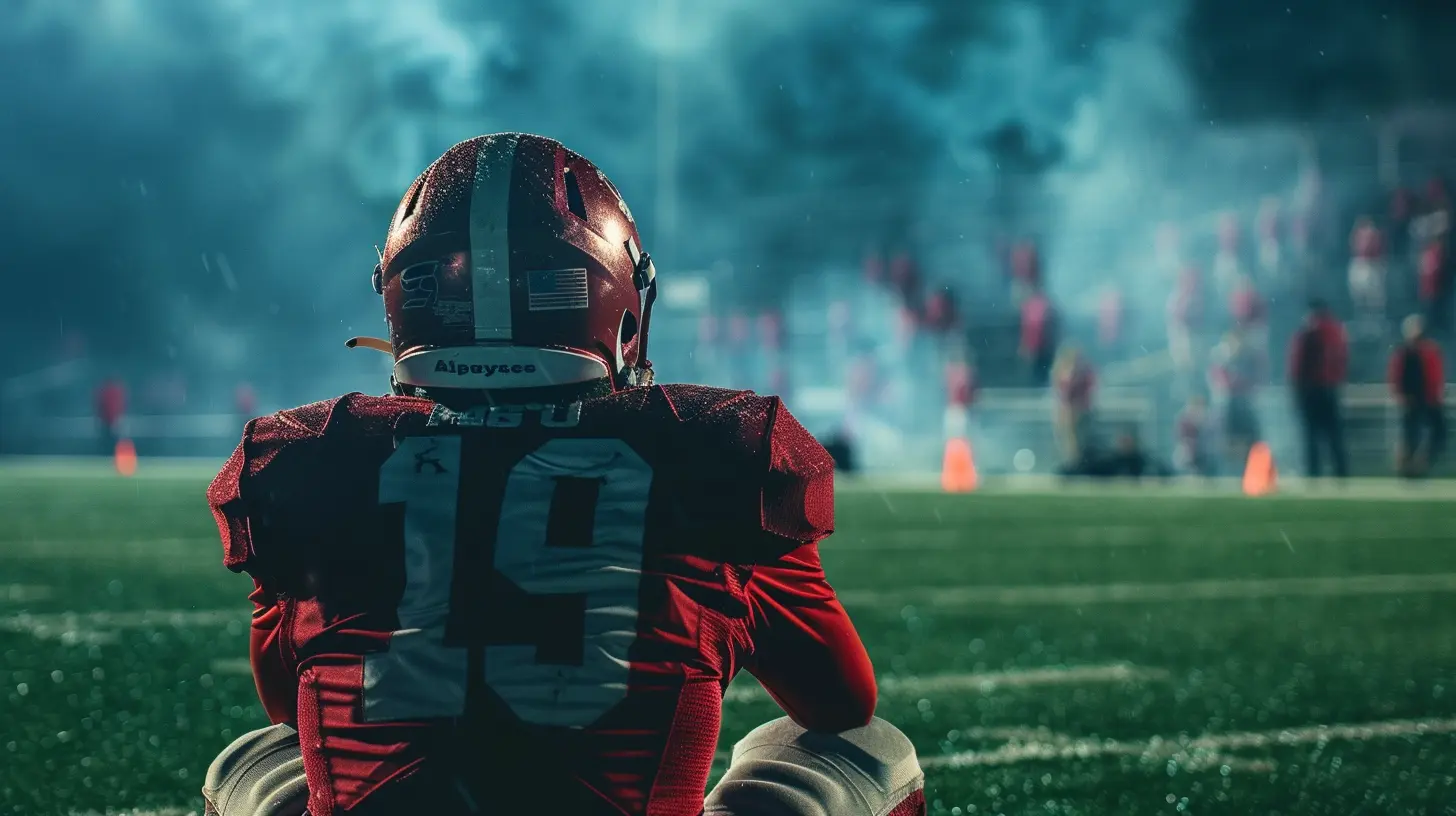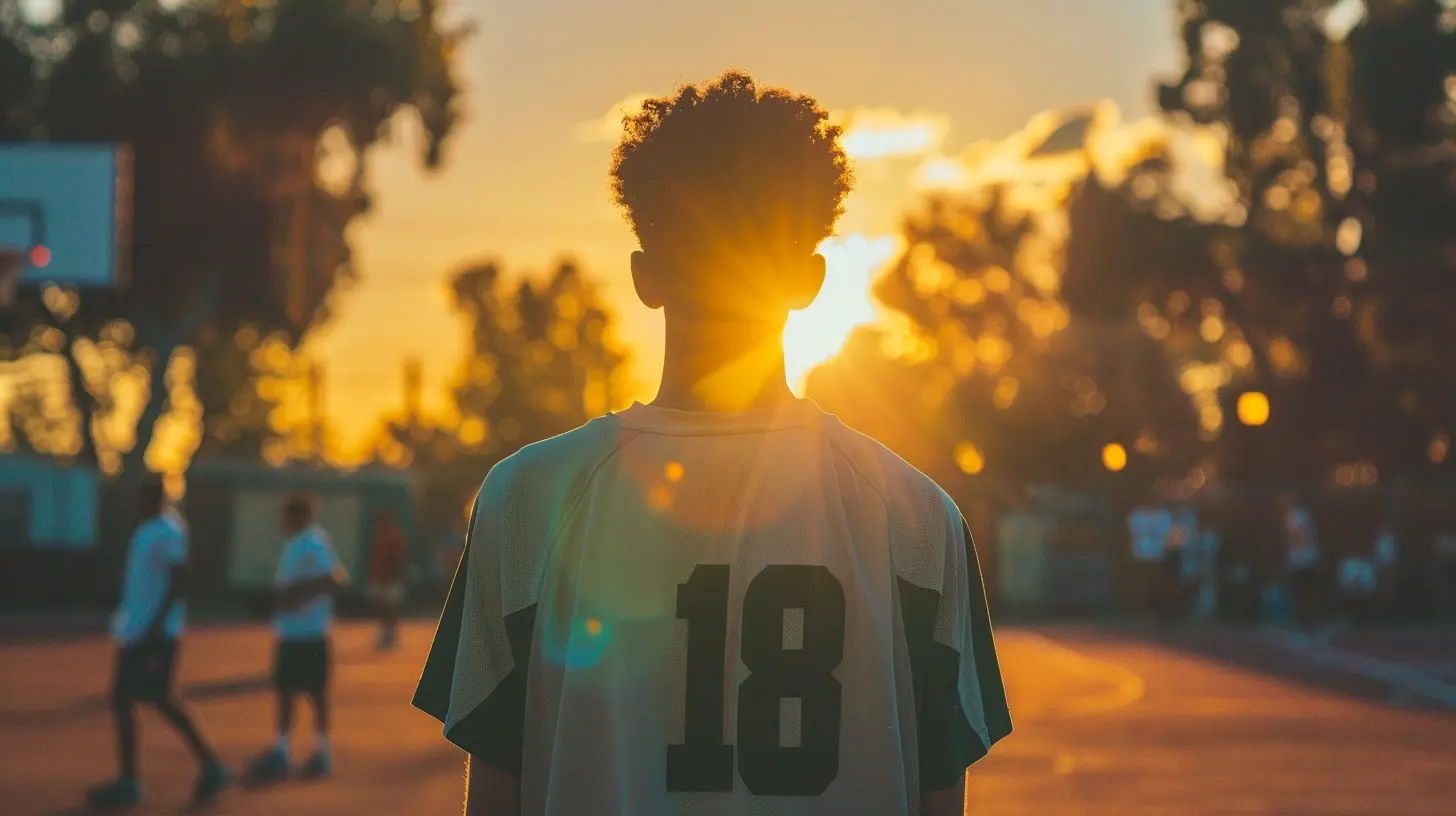Overcoming Defeat: How High School Athletes Can Bounce Back After a Loss
23 September 2025
Let’s be real—losing sucks. No matter how talented a team is or how much effort athletes put in, sometimes the scoreboard just doesn’t reflect it. For high school athletes, it can feel like the end of the world. You’ve trained hard, sacrificed weekends, stayed late for practice, and still walked away with a loss. But guess what? Every champion has faced defeat at some point. What separates the best from the rest isn’t just how they win—it’s how they bounce back after losing.
In this article, we're diving into the mindset, strategies, and habits that help high school athletes overcome defeat and come back stronger than ever. Whether you play football, volleyball, basketball, or track, this is your playbook for turning a tough loss into your biggest comeback.

Why Losses Hit So Hard in High School Sports
High school sports are intense—not just physically, but emotionally. Athletes are still developing their identity, balancing school, social life, and now competition. A loss doesn’t just bruise the ego; it can shake confidence, stir self-doubt, and test team chemistry.The stakes might not seem huge to outsiders, but for the athletes involved, it’s everything. That's why it's so important to know how to mentally and emotionally recover without losing momentum. After all, a loss is only permanent if you allow it to define you.

Step One: Feel It, Then Release It
Here’s the truth—you’re allowed to be upset. Cry, vent, hit the gym, eat ice cream, whatever helps. But don’t pretend it didn’t hurt. Ignoring that feeling just pushes it down, and it will find its way back up later—usually at the worst time.Give yourself a window—maybe 24 hours—to feel that disappointment. After that? It’s time to move forward.
Why It Matters
Suppressing emotions leads to burnout. Athletes who deal with their emotions head-on develop stronger emotional resilience and perform better under pressure. It’s like mental muscle memory.
Shift the Focus from Loss to Lessons
Every loss holds value. It’s a preview of what needs fixing, sharpening, or letting go. Instead of replaying the final score in your head a hundred times, flip the script: What can I take from this?Ask yourself (and maybe your coach):
- What didn’t go as planned?
- Were there communication breakdowns?
- Did I prepare enough?
- Was it mental, physical, or both?
This self-reflection shifts attention from “I failed” to “I’m growing.” Losses become data—not definitions.
Tip: Keep a Post-Game Journal
Write down what happened, what you felt, and what you learned. This builds awareness and helps track progress over time.
Talk It Out with the Team
Sometimes the locker room after a loss feels like a funeral. Heads down, silence everywhere, and awkward eye contact. But open team discussions can act like pressure release valves. They help clear up misunderstandings, realign goals, and build stronger bonds.The key? Keep it constructive. No pointing fingers or dwelling on mistakes. Focus on unity and solutions. “What can WE do better?” instead of “Who messed up?”
Bonus: Coaches Love Leaders
Want to stand out? Be the one who speaks up, encourages teammates, and steers the conversation positively. Coaches notice that kind of leadership.Rebuild Confidence—One Brick at a Time
A loss can crush confidence, even for the most seasoned athlete. But confidence isn’t a switch—it’s more like a staircase. You climb it every day with small wins.Here’s how to get back up:
- Short-term goals: Set tiny targets for practice or performance. It could be something as simple as making 10/10 free throws or acing your sprints.
- Watch your wins: Go back and look at game footage where you played well. Remind yourself of what you’re capable of.
- Positive self-talk: Sounds cheesy, but your brain listens to what you repeatedly say. If you’re always telling yourself “I’m not good enough,” your performance will match that belief. Flip the script.
Confidence isn’t arrogance. It’s quiet. It’s belief rooted in preparation and self-trust.
Time to Train Smarter, Not Just Harder
Most athletes respond to loss by grinding harder. That can help—but only if it’s smart. Doing 100 extra push-ups won’t fix a strategy issue or a lack of communication.Post-loss is the perfect time to:
- Reassess training methods
- Work on fundamentals
- Improve mental game (visualization, meditation, focus drills)
Ask yourself: “What specific skill or area held me back?” Then zone in.
And don’t forget recovery time. Overtraining is just as dangerous as undertraining. Remember, you’re building a machine—not burning it out.
Embrace the Underdog Mentality
There’s something special about being the underdog—it frees you. No weight of expectations, no fear of being knocked down (you’ve already been there). So use that position.Play fearless.
Take risks.
Surprise your opponents.
Some of the greatest comebacks in sports history came from teams and players who had nothing to lose. Go into your next game not with fear, but with a point to prove.
Keep Perspective—This Isn’t the End
One game doesn’t decide your future. College scouts, future seasons, and personal development don’t vanish because of a loss. In fact, how you handle loss can be more impressive than the wins on your record.Remember:
- Every athlete you admire? They’ve lost—badly.
- Michael Jordan was cut from his high school team.
- Serena Williams has had heartbreaking defeats.
- Tom Brady was a 6th-round draft pick.
What made them legends wasn't avoidance of failure—it was their response to it.
Strengthen the Mental Game
Sports are as mental as they are physical. If you’re not training your mind, you’re playing short-handed.Here’s what helps:
- Visualization: Picture yourself succeeding before you walk onto the field or court.
- Mindfulness: Learn to stay present. A missed shot or bad play is just one moment—not the whole game.
- Breathing exercises: Sounds simple, but deep controlled breathing helps with performance anxiety and focus.
Work your brain like you do your body.
Lean on Your Support System
Your parents, coaches, teammates, and friends—they’ve got your back. After a tough loss, it’s easy to isolate or pretend you’re fine. But talking to people helps you process and stay grounded.Let your guard down. Ask for advice or just vent. Sometimes all you need is someone to say, “Yeah, that sucked—but you’re not done.”
Redefine Success
Success isn’t just about winning. It’s about growth, effort, sportsmanship, and progress.Try defining success like this:
- Did I give 100%?
- Did I push through when it got tough?
- Did I support my teammates?
- Did I learn something new?
These are the things that stack up over time and lead to real wins—on and off the field.
Stay Hungry, Stay Humble
Losses humble us. But don’t just stay humble—stay hungry. Let the sting of defeat fuel your desire to come back smarter, tougher, and better. Keep the chip on your shoulder, but also keep your head on straight.Know your worth, but never stop working.
What Coaches Want You to Know
Let’s wrap this up with some real talk about what coaches see when a team loses:- They’re not just watching the scoreboard. They watch effort, attitude, and hustle.
- They notice who shows up early to practice after a loss.
- They remember who stayed focused and didn’t point fingers.
- They’re always scouting leaders, not just scorers.
So, after a loss, show them what kind of athlete and person you are. That’s how you earn trust, respect, and spots on the starting lineup.
Final Thoughts
Losing isn’t just part of the game—it’s part of growth. Every defeat is a fork in the road: Let it break you or let it build you. High school athletes have the unique chance to learn these lessons early, and those who bounce back stronger are the ones who stand out—not just in sports, but in life.So chin up, shoulders back. The next game’s coming—and it’s your shot at redemption.
all images in this post were generated using AI tools
Category:
High School SportsAuthor:

Frankie Bailey
Discussion
rate this article
1 comments
Zadie Kirk
Losses can feel heavy, but they’re stepping stones to growth. Resilience and determination define true athletes. Embrace the lessons learned, support each other, and remember: every setback is a setup for a greater comeback.
October 8, 2025 at 9:07 PM

Frankie Bailey
Thank you for your insightful comment! Embracing losses as learning opportunities truly fosters resilience and strengthens our determination. Together, we can turn setbacks into powerful comebacks.


